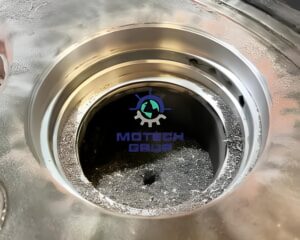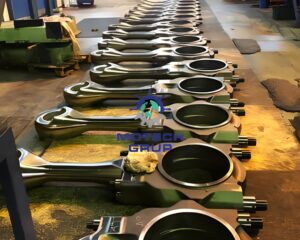Ship Gas Engines
Ship gas engines are an environmentally friendly source of energy used on ships. These engines operate using gaseous fuels such as natural gas or compressed natural gas (CNG). Ship gas engines are considered a low-emission energy source and are becoming increasingly common to reduce the environmental impact of ships. Marine gas engines are available in various types.
These include two-stroke or four-stroke engines, turbocharged or atmospheric engines, and engines with direct injection or injection with a high-pressure fuel pump. Ship gas engines can be customized according to the needs of the ships and are mainly used on large cargo ships. The advantages of marine gas engines include low emission levels, high efficiency, quiet operation, reduced maintenance requirements and low fuel costs.
Furthermore, marine gas engines are considered an environmentally friendly energy source and help reduce the environmental impact of ships. The disadvantages of marine gas engines include high investment costs and the need for specialized equipment for storing and transporting gaseous fuels. In addition, carbon dioxide emissions from the combustion of natural gas are still present, but at a lower level than with other fuels.
In conclusion, marine gas engines are an environmentally friendly source of energy used on ships. These engines have advantages such as low emission levels, high efficiency, quiet operation, reduced maintenance requirements and low fuel costs. Ship gas engines help reduce the environmental impact of ships and are becoming increasingly common as an environmentally friendly energy option.




